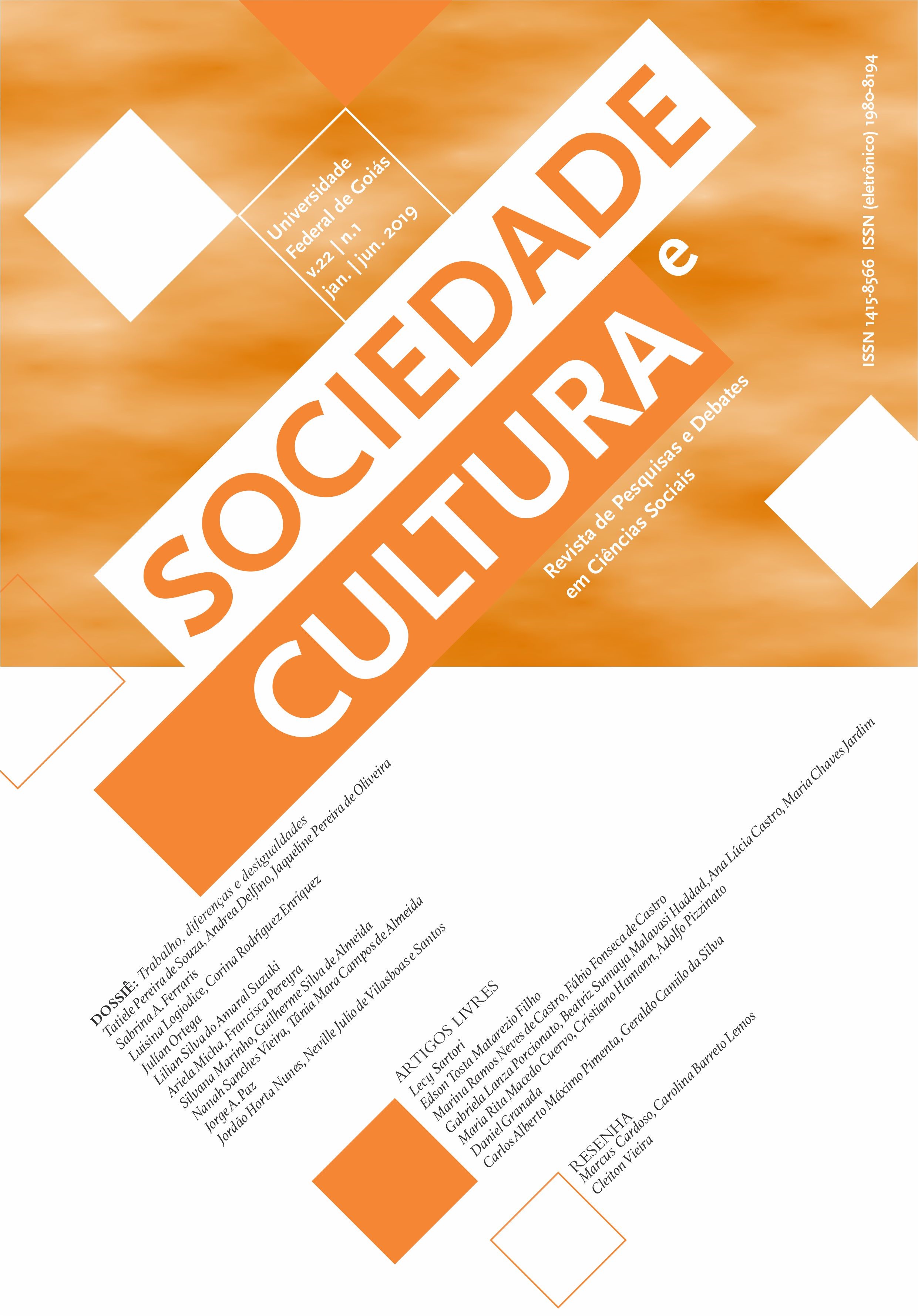De mujeres y gallinas: transiciones laborales de mujeres residentes en la Región Metropolitana de Buenos Aires
DOI:
https://doi.org/10.5216/sec.v22i1.57869Abstract
This work aims to analyze the entry into the labor market for women born between the years 1940 and 1979 living in the Metropolitan Area of Buenos Aires city. For this, building on the Life Course perspective, which emphasizes the analytical importance of crossing historical time and biographical time, we will present some characteristics of the socio-historical context and the productive structure. Then, with quantitative data, we will analyze women’s participation and age at the first job along with their differentials according to social groups and generations. Also, based on Life Stories we will present some labor transition experiences of women from different social groups born in the 1940s and in the 1970s. Finally, we discuss the difficulties of female labor insertion, referred to not only unfavorable contexts with high levels of unemployment and poverty, but also to inequalities in the distribution of household chores, and labor segregation, due to their gender condition.
Downloads
Downloads
Published
How to Cite
Issue
Section
License
Authors who publish in this journal agree to the following terms:
- Authors retain the copyright and grant the journal the right of first publication, the work being simultaneously licensed under the Creative Commons Attribution License, which allows the sharing of the work with acknowledgment of authorship and of the initial publication in this journal;
- Authors are authorized to enter into additional contracts separately, for non-exclusive distribution of the version of the work published in this journal (eg, publishing in an institutional repository or as a book chapter), with acknowledgment of authorship and of the initial publication in this journal;
- Authors are allowed and encouraged to post and distribute their work online (eg, in institutional repositories or on their personal page) at any point before or during the editorial process, as this can bring productive change as well as increases the impact and the citation of the published work (see O Efeito do Acesso Livre).



